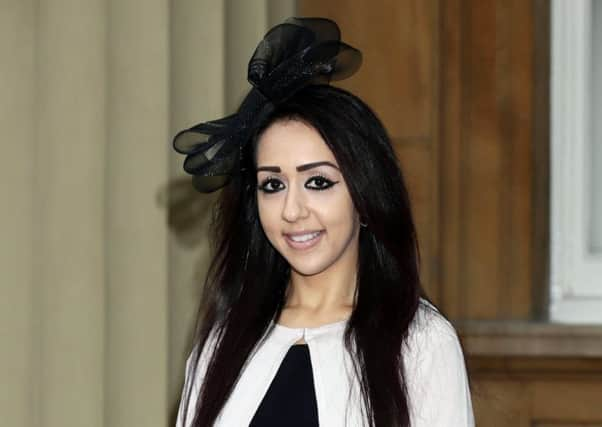7/7 survivor appeals for solidarity amid Islamophobia


Sajda Mughal said she has suffered death threats and online abuse because of her faith since surviving the UK’s first suicide bombings at the age of 22, and says her experience is increasingly echoed by friends, family and colleagues.
As the tenth anniversary of the terrorist attack approaches this week, and the country remembers the harrowing event, she said the pain, flashbacks and nightmares she regularly experiences have intensified.
Advertisement
Hide AdAdvertisement
Hide AdMrs Mughal, now a mother-of-two from Wood Green, north London, still vividly remembers the searing sense of relief she felt when a distant voice called “it’s police, we’re coming to get you” as she cowered among the debris of a derailed Tube carriage “preparing myself for death”.
As she recalled the morning she took the same Piccadilly Line service as 19-year-old suicide bomber Germaine Lindsay towards Russell Square, she said: “I still remember 7/7 like it was yesterday.
“It was a really loud noise, the loudest noise I’ve ever experienced.
“The train came to a sudden standstill. It was rush-hour morning so obviously a packed carriage.
“People were falling to the ground, lights went out instantly, black smoke immediately started to appear in the carriage.
“I thought instantly we’ve derailed. I never thought anything else.
“My next thought was that the train leaving King’s Cross is so near it will hit us and we’ll all burn to death.
“All around me people were literally pleading for their lives, crying, screaming, people started to then kick, bang and punch the doors. I remember people attending to those who needed help, but I went into shock.
Advertisement
Hide AdAdvertisement
Hide Ad“I remained so still and didn’t want to talk to anyone. I genuinely thought that was the day I was going to die so I remember thinking that I hadn’t said goodbye to my loved ones, I hadn’t got married, I hadn’t had children or seen the world. Then I started remembering my childhood, literally I was preparing myself for death.
“That was the day I was going to die.”
Instead, it was the day that changed her life.
After surviving the attack which killed 52 people, she turned her back on her City job and joined the north London-based Jan Trust to launch an anti-radicalisation awareness programme aimed at Muslim mothers.
But while she has witnessed the positive affects her work has had on tackling extremism, the campaigner said she has also seen evidence that Islamophobia is on the rise.
First-hand accounts of attacks on women wearing the veil, vandalism of homes, discrimination in applying for jobs and bullying in schools, as well as social media abuse such as the recently trending hashtag “Kill All Muslims”, are among regular reports.